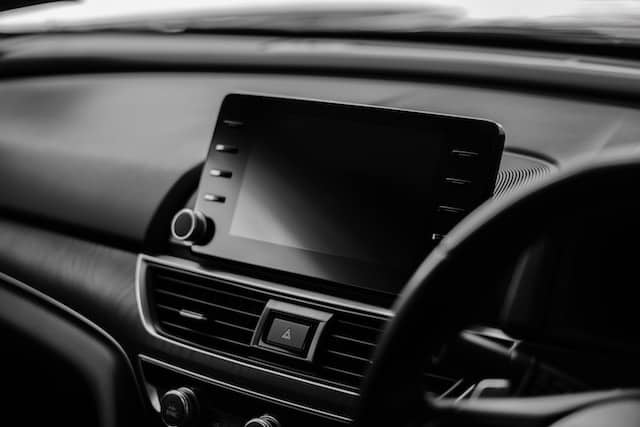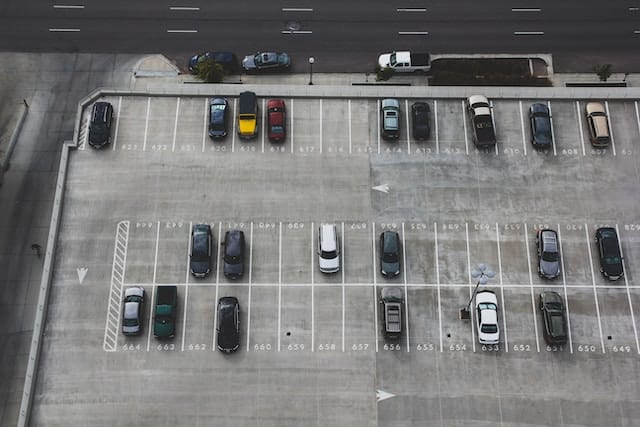Do Dashcams Automatically Delete Footage?
Are you wondering if dashcams automatically delete footage? Well, you’re in the right place! In this article, we will delve into the fascinating world of loop recording systems and explore whether or not these devices have the capability to automatically delete footage.
By understanding how these systems work and the benefits they offer, you’ll be able to make an informed decision when choosing a dashcam for your vehicle.
Loop recording is a feature commonly found in modern dashcams that allows them to continuously record video footage onto a memory card. As the storage space on the card fills up, older recordings are automatically overwritten with new ones, ensuring that you always have the most recent footage available.
This means that unless manually saved or protected, older footage will eventually be deleted as new recordings take their place. However, it’s important to note that while loop recording systems can overwrite old files, they do not necessarily delete them immediately.
Some dashcam brands offer an automatic deletion feature where specific criteria need to be met before older footage is permanently erased from the memory card.
Understanding how loop recording works and its automatic deletion capabilities will help shed light on whether your dashcam deletes footage automatically or requires manual intervention.
So let’s dive deeper into this topic and discover more about what happens behind the scenes of your trusty dashboard companion!
Understanding Loop Recording Systems
You’ll love how loop recording systems in dashcams automatically delete old footage to make room for new recordings, ensuring you never miss a moment on the road. This innovative feature eliminates the need for manual intervention and allows your dashcam to continuously record without worrying about running out of storage space.
Loop recording works by dividing the available storage into segments or loops, typically ranging from a few minutes to several hours. Once a loop is filled with recordings, the oldest footage gets overwritten by new recordings, creating a seamless and uninterrupted recording experience.
Loop recording systems are designed to be efficient and effective in managing storage space. By automatically deleting old footage, they prioritize capturing real-time events and ensure that important moments are always captured. This is particularly useful in situations where you may need evidence of an accident or other incidents on the road.
With loop recording, you can trust that your dashcam will always have enough space to record crucial moments during your journeys.
In addition to its practical benefits, loop recording also offers peace of mind as it takes away the worry of having to manually delete old files or constantly check if there’s enough space left on your memory card. You can focus on driving while knowing that your dashcam is taking care of managing its own storage efficiently.
So embrace this ingenious technology and enjoy the convenience of having a reliable and continuous video record of your travels with loop recording systems in dashcams!
Benefits of Automatic Footage Deletion
One major advantage of dashcams is their ability to effortlessly clear recorded videos, freeing up storage space for new captures. With loop recording systems, dashcams automatically delete older footage to make room for new recordings. This feature ensures that you always have the most recent footage available in case of an accident or other incident on the road.
Automatic footage deletion also eliminates the need for manual intervention. You don’t have to worry about constantly checking your dashcam’s storage capacity or deleting old files yourself. The system takes care of it for you, making the whole process much more convenient and user-friendly.
In addition to saving storage space and providing convenience, automatic footage deletion can also serve as a form of protection. If you’re involved in an accident or witness something on the road, having a clear and recent recording can be crucial for insurance claims or legal purposes. By automatically deleting older videos, dashcams ensure that you always have space available for important captures without having to manually delete irrelevant files.
Overall, the benefits of automatic footage deletion in dashcams are significant. It allows for efficient use of storage space, provides convenience by eliminating the need for manual intervention, and ensures that you always have access to recent recordings when needed. So if you’re considering getting a dashcam, this feature is definitely worth considering as it enhances both functionality and usability.
Dashcam Brands with Automatic Deletion Feature
If you’re searching for a reliable dashcam brand that takes care of managing your recorded videos effortlessly, look no further than these top-notch brands with an automatic deletion feature.
One of the leading brands in this category is BlackVue. Known for their high-quality products, BlackVue offers dashcams with advanced features, including automatic video deletion. With their innovative technology, these dashcams can automatically delete old footage to make room for new recordings, ensuring that you never run out of storage space.
Another top brand that offers the automatic deletion feature is Garmin. Renowned for their GPS technology, Garmin has also made a mark in the dashcam market by providing reliable and user-friendly products. Their dashcams come equipped with a loop recording function that automatically deletes older files when the storage capacity is reached. This not only saves you from the hassle of manually deleting unwanted footage but also ensures that your camera is always ready to capture important moments on the road.
If you want a dashcam brand that takes care of managing your recorded videos effortlessly, consider opting for one with an automatic deletion feature. Brands like BlackVue and Garmin offer top-notch products with advanced technology that ensures you never have to worry about running out of storage space or manually deleting old files. By choosing a dashcam from these brands, you can have peace of mind knowing that your camera will always be ready to capture important moments while driving.
Check out the Best 3 Channel Dash Cam: Our Top Picks With Detailed Reviews.
Manual Deletion Options for Dashcams
To manage your recorded videos on a dashcam, simply access the settings and choose the option to manually delete unwanted files. Most dashcams provide a user-friendly interface that allows you to easily navigate through different settings and options.
Once you locate the manual deletion feature, you can select specific videos or delete entire folders of footage that aren’t needed anymore.
Having the ability to manually delete videos gives you full control over your dashcam’s storage space. By removing unnecessary recordings, you can free up memory for new footage and make sure that important events aren’t accidentally overwritten. This feature is especially useful when you want to preserve specific videos as evidence in case of an accident or any other legal situations.
Additionally, some dashcams offer advanced manual deletion options such as batch selection or the ability to lock certain files so they can’t be automatically deleted by the device. These features allow for more precise management of your video files, making sure that only relevant and significant footage is retained.
Read Also: How To Reset Dash Cam? No-Nonsense Guide for 2023
By providing manual deletion options, dashcam manufacturers empower users like yourself with greater control over their recorded videos. It enables efficient organization of files, ensures important footage is protected from automatic deletion, and maximizes available storage space for new recordings.
So next time you need to remove unwanted footage from your dashcam, simply access the settings menu and take advantage of these convenient manual deletion features.
Factors to Consider When Choosing a Dashcam
When choosing a dashcam, it’s important to think about various factors that can impact its performance and effectiveness.
One of the first things to consider is the video resolution. Higher resolution cameras will capture clearer footage, making it easier to identify license plates or other important details in the event of an accident.
Additionally, you should look for a dashcam with a wide viewing angle. A wider angle will ensure that more of the road is captured in the footage, providing a more comprehensive view of any incidents that may occur.
Another factor to consider is whether the dashcam has GPS capabilities. This feature allows you to track your location and speed along with the video footage. Having GPS data can be useful if you ever need to provide evidence of your driving behavior or location during an incident.
It’s also worth considering whether the dashcam has built-in Wi-Fi for easy access to videos from your smartphone or computer.
Lastly, think about storage capacity and loop recording. Dashcams typically use microSD cards for storage, so make sure you choose one with enough capacity to store several hours of footage before it starts overwriting old files. Loop recording is also crucial as it ensures continuous recording by automatically deleting older files when the memory card is full.
Considering these factors will help you select a dashcam that meets your needs and provides reliable footage in case of any incidents on the road.
Further Reading: What To Look For In A Dashcam? The Ultimate Buying Guide
Conclusion
In conclusion, dashcams do have the capability to automatically delete footage through a loop recording system. This feature ensures that the dashcam’s memory card doesn’t become full and allows for continuous recording without manual intervention.
The benefits of this automatic deletion feature are numerous. It includes the ability to capture new footage without interruption and avoid the hassle of regularly clearing out old recordings.
Many popular dashcam brands offer this automatic deletion feature as a standard function. Brands such as Nextbase, Garmin, and Vantrue have integrated loop recording systems into their dashcams, providing users with peace of mind knowing that their device will continue to record important moments on the road.
However, it’s worth noting that some dashcams also provide manual deletion options for those who prefer more control over their recorded footage. These options allow users to selectively delete specific clips or protect certain files from being deleted during automatic deletion cycles.
When choosing a dashcam, it’s important to consider factors such as video quality, storage capacity, and ease of use. Additionally, finding a balance between convenience and customization will ensure that you have a reliable dashcam that meets your specific needs on the road.







